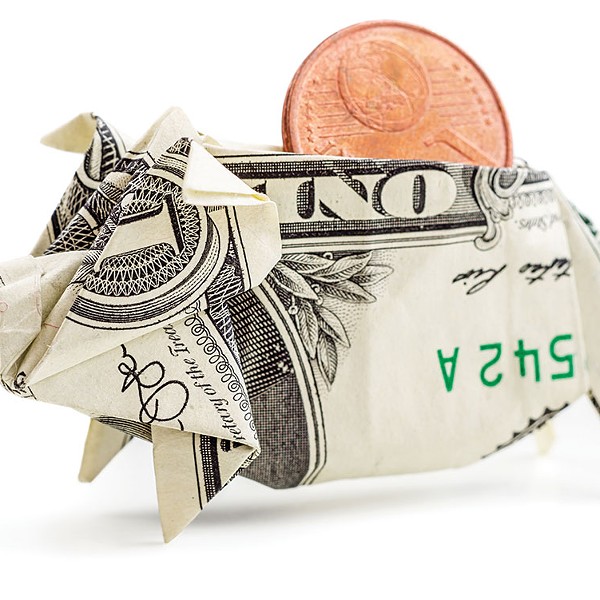Plutonomy is a term recently coined by Citigroup Research, a division of Citigroup Global Markets, Inc., to describe an economy in which a tiny group of people have the vast majority of the wealth. The term is from an investing memo, for internal consumption only, about how to invest in plutonomies.
The key plutonomies today, it said, are the US, Britain, and Canada.
Not all modern capitalist countries are plutonomies. Citigroup Research identifies an “egalitarian bloc” that consists of continental Europe (Germany, France, Scandinavia, the Netherlands, and so on, except Italy) and Japan.
Plutocracy is one of the several types of government categorized by the ancient Greeks. It is rule by the wealthy.
Kevin Phillips used to be a Republican political strategist. He wrote The Emerging Republican Majority. It outlined the “Southern strategy” and was the blueprint for Richard Nixon’s victorious presidential campaign. Once he saw the results of Republican rule under Ronald Reagan, Phillips became violently disenchanted.
By 1990, Phillips was arguing that the United States had become a plutocracy. He was right.
Kleptocracy—from the Greek klepto (theft) and kratos (rule)—is a government that takes money from the general population for the personal enrichment of themselves and their cronies.
Reagan basically got government out of the way of corporations and the rich. He cut taxes, cut regulations, and busted unions.
The Bush Administration added a radical innovation. It was to treat government as a means to take money from regular people and transfer it to the rich. Its crowning moment was the bank bailout.
The people who ran the banks and investment companies made stupendous personal fortunes while they inflated a financial bubble. When the bubble collapsed, they kept the money they had skimmed off the top and had the government pay the losses. To say the government is paying means that we must pay for it, as the government’s only revenue stream is taxes. Once the government—we—rescued the banks and investment firms, they continued to take huge incomes from the money we provided.
This is a kleptocracy.
What makes us a plutonomy? From the Citigroup report: “The top 1% of households account for 40% of financial net worth, more than the bottom 95% put together.”
Were we always this way? Sometimes.
But from World War I right through the 1970s, with a hiccup in the 1920s, we moved steadily toward a more egalitarian society.
In 1981 Ronald Reagan came into office. Our nation changed direction.
Let us look at the top one tenth of the top 1 percent of our population. That’s just 100,000 households. In the 1970s they got a bit less than 2 percent of the national income. By 2000, their share of the national income had gone up to 7 percent.
In 2000, the top 1 percent of households accounted for 20 percent of overall US income. That’s only slightly smaller than the share that goes to the bottom 60 percent. In other words, there are one million households that make as much as 60 million households.
The report is worth reading. It’s a fresh perspective and very insightful about certain things. Most economists are very concerned about America’s trade imbalances. The Citigroup guys note that the egalitarian countries have trade surpluses, and all the plutonomies (US, UK, and Canada) have negative balance sheets.
So it’s something endemic to a plutonomy. The analysts are quite cheerful about it. They predict that as long as we remain a plutonomy, the rich will continue to find ways to get even richer. They will do so through costcutting: lower wages and outsourcing, and more leveraging.
It does not matter to plutocrats if US workers get less and less, and if America’s assets get mortgaged off and hollowed out, so long as the plutocrats can rip their millions off the top at each step on the way down.
Economists also worry about the US savings rate, now approaching zero. The Citigroup team point out that this too is an inherent part of plutonomy:
“In a plutonomy, the rich drop their savings rate, consume a larger fraction of their bloated, very large share of the economy. This behavior overshadows the decisions of everyone else. The behavior of the exceptionally rich drives the national numbers—the ‘appalling low’ overall savings rate, the ‘over-extended consumer,’ and the ‘unsustainable’ current accounts that accompany this phenomenon.”
The point of all this, for the authors, is to figure out how to make money when you’re in a plutonomy.
Here is their investment advice: “Buy shares in companies the make the toys that the Plutonomists enjoy.” Their list includes Porsche, Bulgari, Burberry, Hermes, Sotheby’s, luxury hotel chains, and private banking.
The authors are, however, astonishingly blind to other things.
They begin with a list of plutonomies: “16th-century Spain, 17th-century Holland, the Gilded Age, and the Roaring Twenties in the US.”
Yet they fail to notice that all of these ended with crashes. In the case of Spain and Holland, those crashes marked the end of their status as world powers.
To them, the way that America became a plutonomy is a mystery.
Yet the answer is very simple. Tax cuts for the wealthy. In the 1920s, tax rates for that top 1 percent went from 70 percent down to 21 percent. We quickly became a plutonomy. That was followed by the Great Depression. Reagan cut taxes on the wealthiest from 70 percent down to 50 percent. The plutonomy was reborn. George Bush (the lesser) cut the top rate even further, down to 28 percent. The plutonomy became a kleptocracy.
We’re still there. We saved the banks. They big ones are now reporting record profits. The stock market is back up. But we didn’t save working people. Unemployment is now nearly 10 percent. The highest since the greatest hero of the Right, Ronald Reagan, was in power.
There is no doubt that a plutonomy is good if you’re super-rich. They will fight for it, propagandize for it, control the means of communication, buy every politician they can, every way they can.
There is also no doubt that it is bad for you and me, bad for America, and a disaster for our children.

















